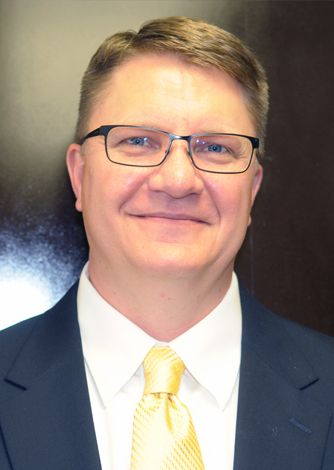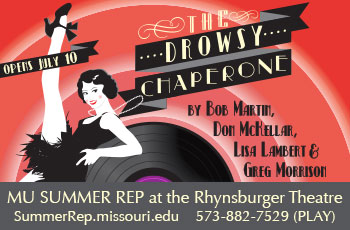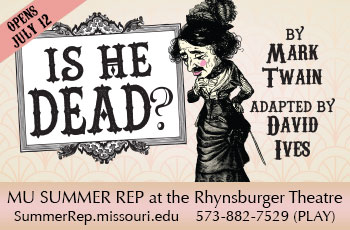
Jerry Frank
As a historian, Jerry Frank has a lot of experience asking questions about how people and institutions operated in the past, collecting data to answer those questions, communicating those findings to the public and using that information to inform future decisions. His experience made the assistant professor of history the right fit as faculty fellow of Mizzou Advantage effective June 1.
Now in its fourth year, the Mizzou Advantage program, which promotes MU interdisciplinary research through four initiatives, is ready for the next step. Many of the investments made when the initiative launched are coming to fruition, Frank said.
“If you look at the trajectory of Mizzou Advantage, our networks across campus are still growing. They’re starting to produce measurable returns,” Frank said. “But the ultimate objective of Mizzou Advantage goes beyond the university. We need to be more actively pushing our networks and opportunities beyond the campus itself. We’re right at that tipping point.”
As faculty fellow, Frank manages the day-to-day operations and develops infrastructure to support the program. He also serves as its ambassador, encouraging networking among MU faculty and beyond, helping find funding for proposals, coordinating faculty hires and sponsoring conferences.
Before coming to MU in September 2010, Frank was director of the Colorado Water Workshop, an annual conference to explore the water issues in Colorado and other parts of the West. He worked with a diverse group of stakeholders, engaging policymakers, companies, citizens and scholars from biology, economics, history, politics, geography, geology, communications, business and anthropology.
“This is right in my wheelhouse,” said Frank, whose research focus at MU is environmental history. “If you look at environmental historians’ scholarship broadly, one of the trends you see is that we all recognize the major problems human beings face — in terms of energy, health, food, communication — are so large, so dynamic, so fast-moving that no one field can even begin to address them.
“When I see a program like Mizzou Advantage that’s trying to do that within the framework of higher education, it is really exciting.”
Since launching, Mizzou Advantage has brought more than $13 million to campus through research grants and donations, funded more than 100 undergraduate and graduate students to attend conferences, hired seven prominent faculty, and provided staff and faculty development awards.
On June 2, Mizzou Advantage announced new awards of more than $3.8 million to 45 interdisciplinary teams across campus, including a journalism, architectural studies and computer science research project to study techniques for 3-D storytelling, and a statewide collaboration among MU, Washington University and University of Missouri–Kansas City to conduct stroke research.
“Mizzou Advantage is a key part of the university, and it needs to be aligned specifically with the Strategic Operating Plan, which is aligned with our mission as a land-grant institution, so that we’re all pulling in the same direction,” Frank said.
“We’re repositioning the University of Missouri to highlight our strengths to make sure people in Jefferson City, Missouri, and the major granting institutions are aware of who we are and respect who we are.”
— Kelsey Allen

